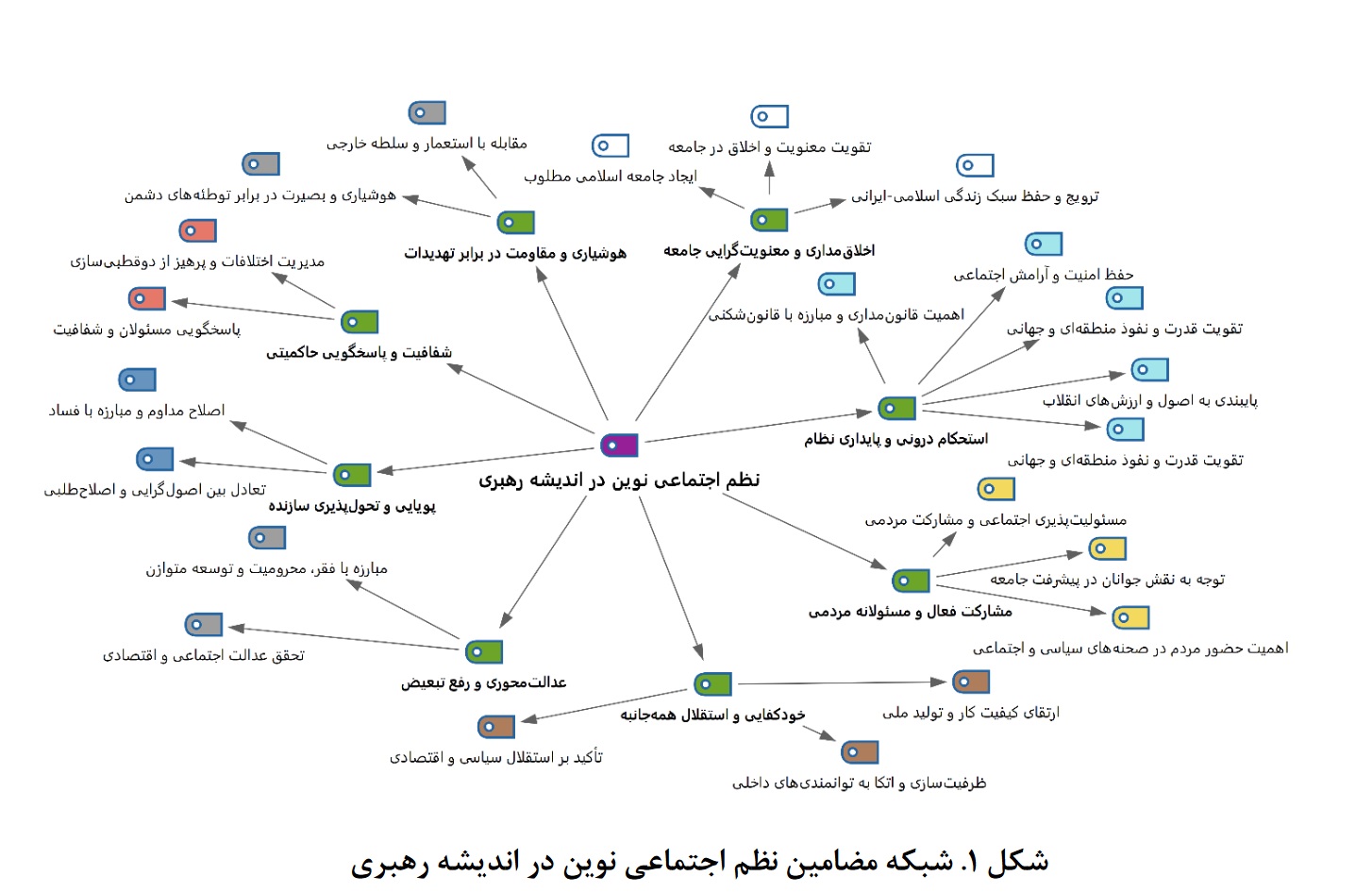The New Social Order in the Supreme Leader’s Thought: A Model for Transitioning from Contemporary Challenges to the New Islamic Civilization
Keywords:
New Social Order, Thought of the Supreme Leader of the Islamic Revolution, New Islamic Civilization, Transition Era, Islamic-Iranian Social Order ModelAbstract
The present study aims to explain the model of a new social order in the thought of the Supreme Leader of the Islamic Revolution and its implications for transitioning from contemporary challenges to the new Islamic civilization. In an era of rapid global changes and complex social challenges, understanding and redefining the concept of social order has gained critical importance. This study, employing a qualitative approach and utilizing the thematic analysis method, deeply examines the statements and writings of the Supreme Leader during the period from 1989 to 2022. The research findings identify eight overarching themes as the main dimensions of the new social order: internal solidity and system stability, ethical and spiritual orientation of society, active and responsible public participation, comprehensive self-sufficiency and independence, justice orientation and elimination of discrimination, constructive dynamism and adaptability, transparency and governmental accountability, and vigilance and resistance against threats. This model, through a creative combination of traditional and modern elements and a simultaneous emphasis on both material and spiritual dimensions of social life, demonstrates significant capacity to address contemporary social order challenges and move towards the new Islamic civilization. A comparative analysis of this model with classical and contemporary theories of social order reveals notable innovations in integrating agency and structure, dynamism and stability, and material and spiritual dimensions. While offering practical solutions for implementing the model, this research also emphasizes the necessity of further studies to gain a deeper understanding of the various aspects of this model and its implementation challenges.
Downloads








